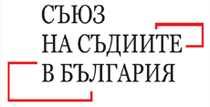 |
The URV was created in 1991 by the Parliament of Catalonia from the already existing university faculties and schools. In this way the Tarragona University of the 16th century was restored. From the very first day its aim has been very clear: to place knowledge at the service of society so as to contribute to the social and economic development of its environment, which has gradually transformed over time. |
|
Members:
|
 |
The Universitat Autònoma de Barcelona (UAB) is one of the major public universities in Spain. In 2009 was awarded with the label of Campus of International Excellence by the Spanish Minister of Education. It is located in Bellaterra, very close to Barcelona. Currently, the University offers 83 undergraduate courses, covering a wide range of fields such as humanities and arts, social sciences, health sciences, technology and physical sciences. The UAB is the leading Spanish university according with the QS ranking 2012 and is ranked in the position 176rd of the global ranking. The UAB is recognized internationally for its quality and innovation in research. It coordinates a potent scientific and technological campus which comprises all the departments, science and technology services, research centers, institutes and university hospitals. This wide range of disciplines integrated into a single area help to promote multi-disciplinarity in research. The UAB has so far been partner in 122 project of the 7FP, acting as a coordinator for 13 of them and received more than 34 millions Euros of funding. Regarding the theme SSH, UAB participates in 10 projects, being the Spanish university with a highest participation in this field. Furthermore, UAB also participates in 85 European research projects outside the 7FP. |
|
Members:
|
 |
Szczecin University, founded over 27 years ago, may boast itself on the fact that it is West Pomerania’s largest university. The city and university are located in direct geographical and cultural proximity to Germany (ca. 150 kilometers from Berlin) and within 100-kilometer distance from the Baltic Sea. Szczecin is often referred to as the “Paris of the North” due to its original urban design, i.e. distinctive star-shaped squares and roundabouts. The city is especially valued for its green spaces; there are plenty of parks and lush green squares. |
|
Members: |
 |
The Bulgarian Judges Association (BJA), a member of the International Association of Judges, was founded in 1997. It has 938 members from all judicial districts and levels of the judiciary in Bulgaria. |
|
Members: |
Other Collaborators:
 |
 |
 |
 |
 |
| Javier Freixes (European Institute of Law), M. Ángels Gensana (Catalan Institute for Women), Andrés Montilla (UAB), Raquel Machancoses (URV), Kristina Apostolova (URV), Montserrat Escudé (Mossos d'Esquadra), Laura Picó (Lawyer), M. Cinta López (prosecutor), Antonio Fernández (judge). | ||||
 +34 977558343
+34 977558343 



